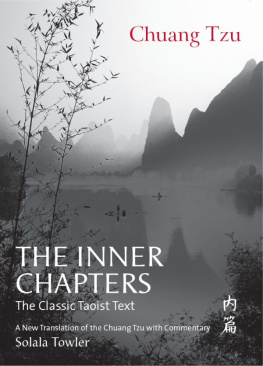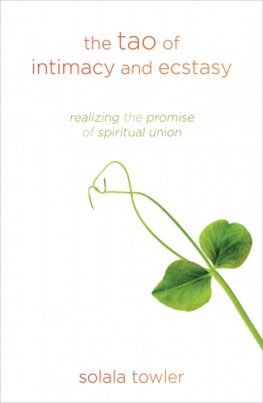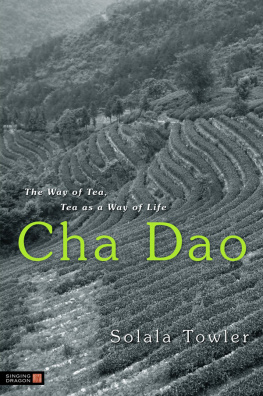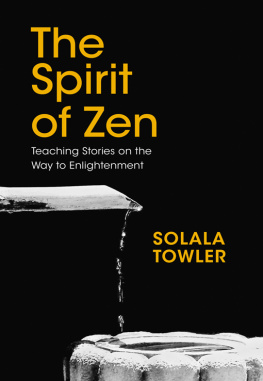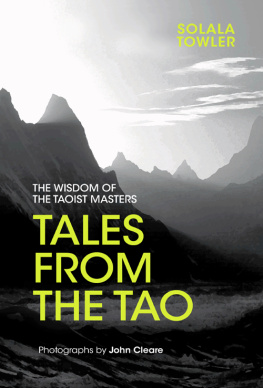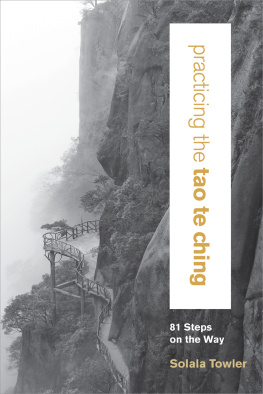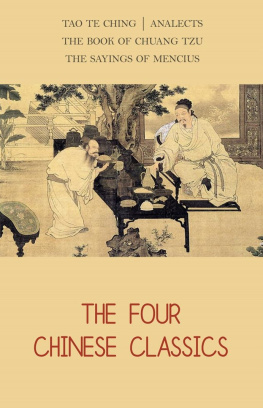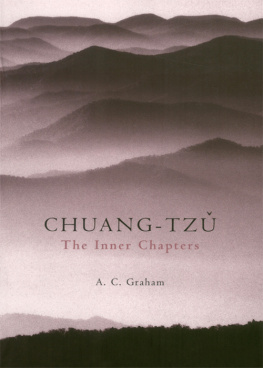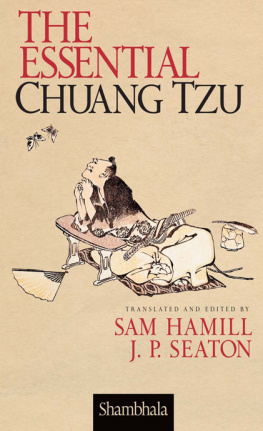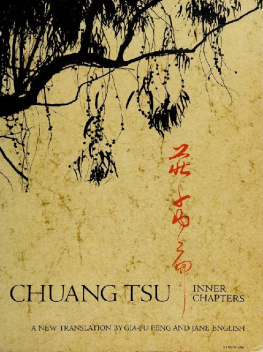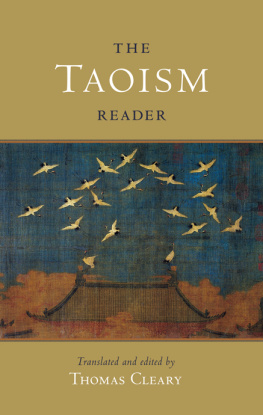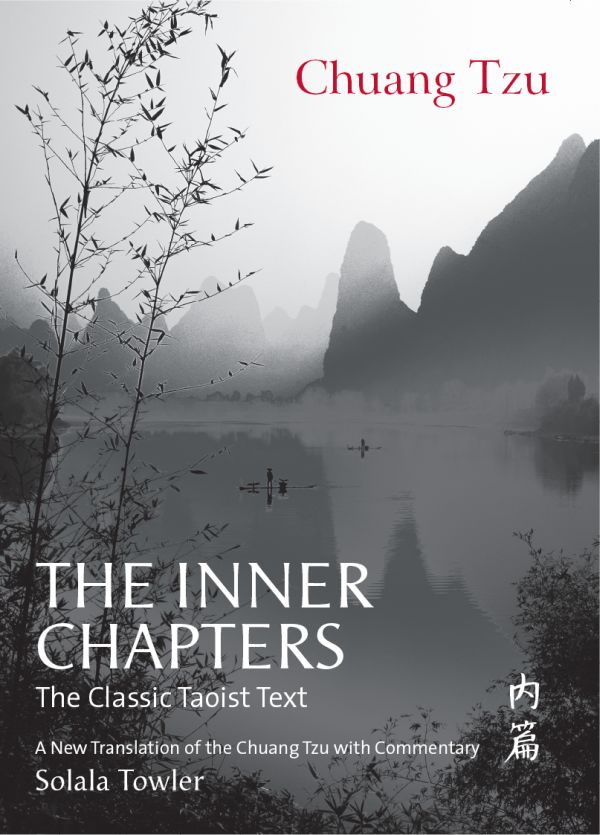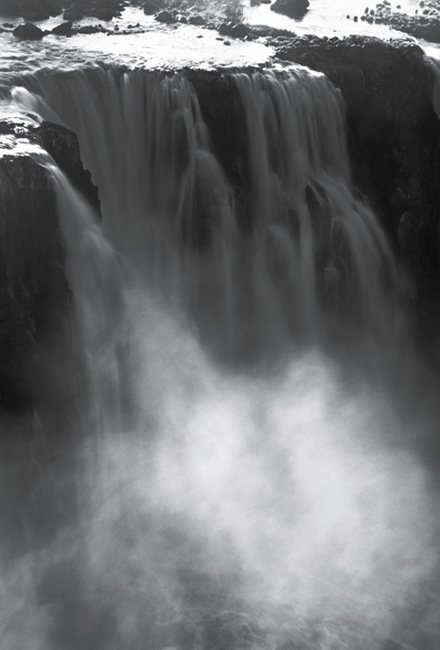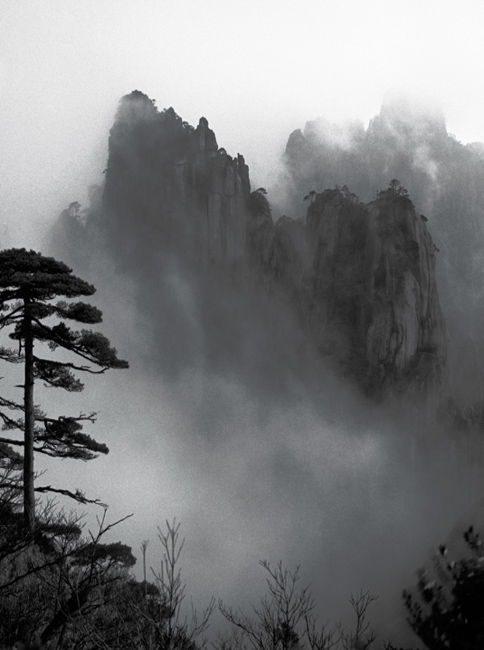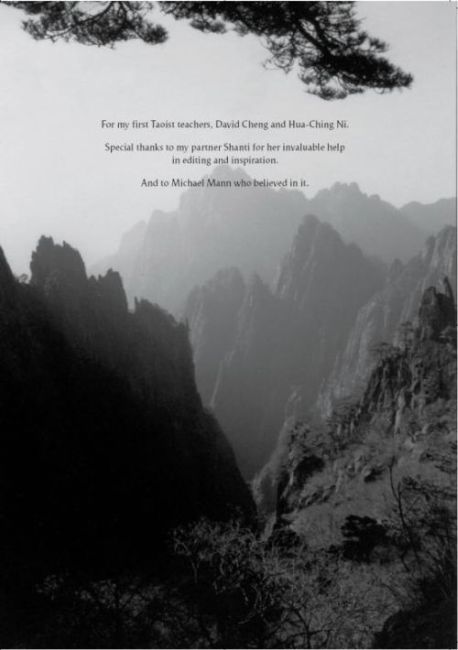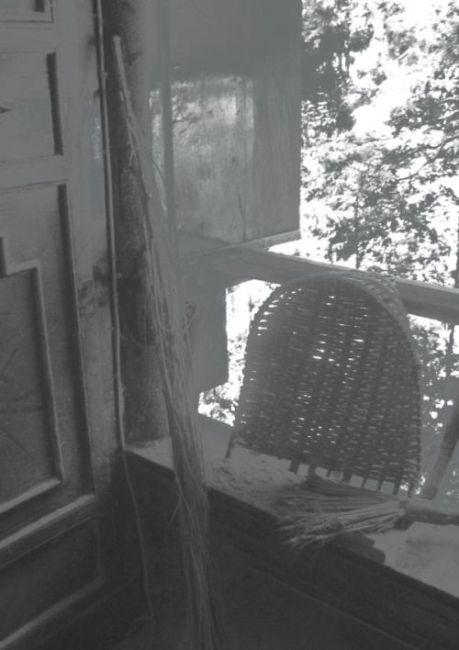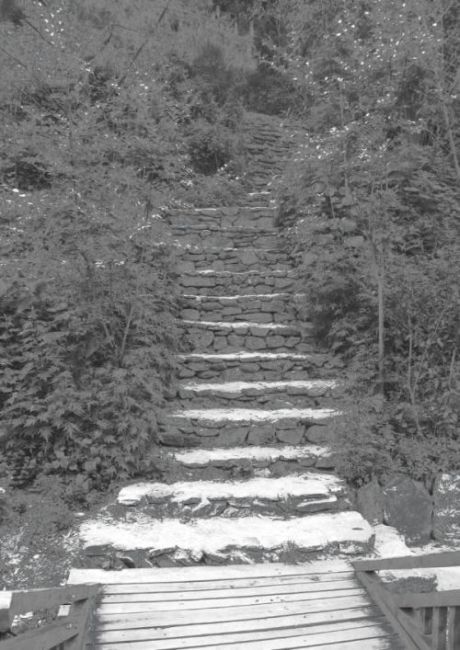Solala Towler calls upon his many years as a student of Taoism, an instructor of qigong, and his travels in China leading tours to the sacred mountains of Taoism, as well as his 17 years as the editor of the only English language Taoist magazine in the U.S., The Empty Vessel, to bring a freshness and an open mind and heart to this ancient work of Taoist wisdom. He is founder of the sacred music ensemble Windhorse and has recorded a number of CDS of meditation/relaxation music, which have been used in many qigong DVDS . He has written a number of successful books on Taoism and Qigong.
Other books by Solala Towler
Embarking on the Way
A Gathering of Cranes
Tao Paths to Good Fortune
Tao Paths to Love
Tao Paths to Harmony
Tao Paths to Long Life
Chi: Energy of Harmony
Chi: Energy of Happiness
Cha Dao: The Way of Tea, Tea As a Way of Life
Sacred Union
Tales From the Tao
Dragon Boy
Chuang Tzu
THE INNER
CHAPTERS
The Classic Taoist Text
A New Translation of the Chuang Tzu
with Commentary
Solala Towler
CONTENTS
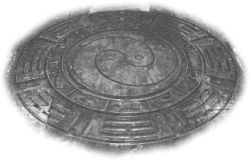
INTRODUCTION
T he Chuang Tzu (Zhuangzi) is a text named after its legendary author (369286 BCE ). After the Tao Te Ching (Daode Jing) by Lao Tzu, it is the most widely known Taoist (Daoist) text, yet they are vastly different in style and tone. While Lao Tzus writings are short, pithy, poetic statements, Chuang Tzus are voluminous and full of puns and riddles. He challenges the status quo at all times and maintains his right to live his own life the way he sees fit.
Besides the ability to play the fool, Chuang Tzu was also a formidable logician, though he used reason and logic in a peculiar way. One might even call it inside-out reasoning. Victor Mair says: What logic there is in Chuang Tzu is directed against reason itself, in particular against the rational choice between one course of action and another.
Lao Tzus work consists of mostly very short poetic phrases, while Chuang Tzus work is full of stories, metaphors, riddles, and aphorisms. The Chinese are very fond of puns and conundrums and this text is full of them, but they are very difficult to translate and dont always come through in English.
Problems arise with some translations by sinologists who, although accustomed to the Chinese language, are often not familiar with the ideas and practices that the text describes; that being so, they may miss the point of what they are translating. The version of the Chuang Tzu that you now hold in your hands is not a translation. That is, I am not translating directly from classical Chinese to English. Alas, I have not that facility, and my Chinese is purely conversational and very rudimentary at that. While in China I usually feel that I am using baby talk the whole time. It is only the generosity of Chinese people towards us Mei Guo Ren (Beautiful Country People or Americans) that allows me to make any headway with communication at all!
But I have been studying Taoist philosophy and practices for 20 years and have assiduously attempted to apply those principles to my life, with varying degrees of success. This version of Chuang Tzu is my attempt at rendering these teachings in a way that will be of use to the student of Taoism and to anyone interested in applying these ancient teachings to their lives. I have chosen to quote liberally from Lao Tzus work, as his book predates the Chuang Tzu and was very influential. The succinct way that Lao Tzu expresses himself can help clarify much of the Chuang Tzu.
Scholars argue, as scholars do, as much about the identity of the author of the Chuang Tzu as they do about that of the Tao Te Ching. While there is much evidence that no one person is the author of either book, I like to believe in the story of Lao Tzu and his ride into the western frontier on the back of his stolid ox. Lao Tzu (Laozi) was head of the royal archives for the royal court of Chou, about 2,500 years ago. The Chou dynasty had been a long and creative one but now it was becoming decadent and corrupt. China was about to enter the Warring States Period, when the old rules of honor and chivalry were dying out. China became a group of small kingdoms that fought each other for dominance. Lao Tzu decided to leave the capital and, accompanied by one student, he set out on an ox, a sure-footed if plodding beast, and headed out for the far west wilderness. When he reached the frontier border gate at Louguantai he met one of his students, who begged him to write down some of his teachings so that they would not disappear with him. So Lao Tzu spent two nights writing this small book of 81 chapters, using a little over 5,000 characters, expounding his philosophy of Tao. He then mounted his noble steed and headed off to the mountains, never to be seen again.
In regard to the Chuang Tzu, most scholars agree that the first seven chapters were written by one person, most likely the person known as Chuang Chou or as Master Chuang, and these are referred to as the Inner Chapters. Although they are only part of this amazing and sometimes perplexing text, they do give a good flavor of the entire work.
A few words about Taoism itself seem appropriate here. The ideas and philosophy of what we now call Taoism were already long established when Lao Tzu wrote the Tao Te Ching and when Chuang Tzu wrote his book. Taoism originated from the ancient shamanic roots of Chinese civilization. Indeed, many of the modern practices of internal alchemy and qigong have wu or shamanic elements. In ancient times this path was not called Taoism. It was not really called anything. It was just an attitude towards life, health and spiritual cultivation. It wasnt until the second century CE that an organized form of Taoism emerged, partially, some scholars say, in response to the popularity of Buddhism in China.
Taoism has a long history, stretching back to the Yellow Emperor (Huang Di) who is said to have reigned during the middle of the third millennium BCE . It continues down the ages through Lao Tzu, Chuang Tzu, Ko Hong, Lu Dong Bin and countless other invisible sages, both men and women, who have carried on the ancient traditions and created new practices even up to today.
Currently there are two streams of Taoism in China, tao jia and tao jio. The first is what can be called philosophical or classical Taoism, which is the Taoism of Lao Tzu and Chuang Tzu. The second is the more recent development of Taoism and can be called religious Taoism, with a huge canon, celibate monastics, ritual and liturgy. At the same time, religious Taoism is still informed by the works of the ancient classics and the Tao Te Ching is recited or chanted each day in many Taoist temples in China.

